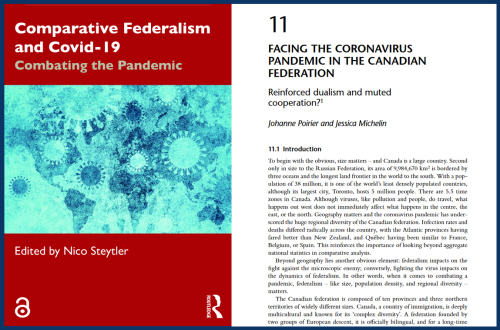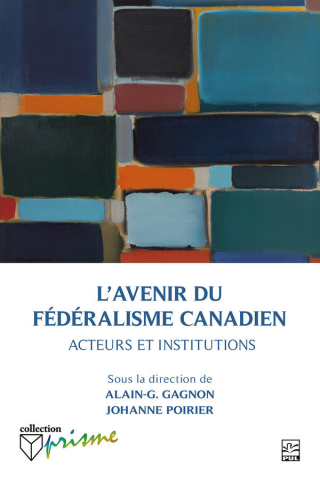
Above: In September 2021, when we could finally return to campus, after a year of "online learning", a group of students and Prof. Poirier met for the first time, on the steps of Old Chancellor Day Hall! Photo by Lysanne Larose.
Social media
You can follow the MacKell Chair at facebook.com/ChaireMacKellChair. Why not give us a like?
Recent media mentions
"La nation québécoise face à ses responsabilités", opinion letter by Johanne POIRIER, La Presse, 28 June 2022.
"Aucun obstacle constitutionnel à la zone de parité", opinion letter by Johanne POIRIER, Daniel TURP and Thérèse MAILLOUX, Le Soleil, 4 February 2020.
What's new?
Winners of the Baxter Family Competition on Federalism 2025
Federalism: Thinking Outside the Box
McGill University's Faculty of Law and the Peter MacKell Chair in Federalism are delighted to announce the winners of the 2024-2025 Baxter Family Competition on Federalism. Organized by Professor Johanne Poirier, this international essay Competition was open to students and recent graduates in law and political science.
We received numerous submissions of an exceptional quality from scholars and junior practitioners from many countries, including Belgium, Canada, India, Italy, the Netherlands, Switzerland, the United Kingdom and the United States. Amongst those, the international jury attributed the following prizes:
- First Prize: Zachary Jericho Couture (JD Student at the Peter A. Allard School of Law, University of British Columbia, Canada) – 5,000$

“Weaponizing Federalism to Deny Pluralism: Canadian Court (Mis-)Use of Federalism Principles Against Indigenous Jurisdiction”
For its original and novel argument, tackling a very important topic through a critical lens, a strong empirical focus, and superb writing style.
-
Second Prize: Johann-Jakob Chervet (PhD Candidate in Law, University of Fribourg, Switzerland) – 3,000$

“The Elusive Promise of Unity and Diversity in the Legal Order: The Rule of Law and Federalism”
For its important contribution to theory in sustaining legal diversity in federal systems, through accessible language and a powerful comparative approach.
-
Third Prize: Julian Clarenne (Postdoctoral researcher in Law at Centre de recherche interdisciplinaire sur la diversité et la démocratie (CRIDAQ) and McGill University, visiting professor at UCLouvain Saint-Louis (Brussels), Belgium)

“The Democratic Deficit of Executive Federalism: Where Are the Parliaments?”
For its interesting comparative approach and innovative "interparliamentary" approach to trying to reduce the democratic deficit.
-
Special Mention from the Jury: Colin Coon (JD Student, University of Ottawa, Canada)

“A Divided Environment: Canada’s Inability to Meet the United Nations Framework Convention on Climate Change’s Commitments as a Result of Division of Powers Jurisprudence”
For its insightful treatment of the intersection between international commitments and division of powers’ issues in tackling climate change.
-
Special Mention from the Jury: Josep M. Tirapu-Sanuy (PhD candidate in Law, University of Cambridge, United Kingdom)

“Courts in Plurinational Federalism: The Judicial Role in the Accommodation of Minority Nations”
For its well researched and strong theoretical grounds, along with its skillful multilevel analysis of plurinational federations.
We are deeply grateful to the distinguished members of our international jury, who thoroughly considered the submissions for the 2025 Competition:
-
The Honourable Marie Deschamps, former Justice at the Supreme Court of Canada.
-
Shahal Khoso, winner of the 2023 edition of the Baxter Family Competition on Federalism, PhD candidate and researcher at Universitat Pompeu Fabra, Barcelona (Spain), Visiting Scholar at Yale University and Ronald L. Watts Young Researcher Award (2023).
-
Prof. John Kincaid, Professor of Government and Public Service, Director of the Meyner Center for the Study of State and Local Government, President of the Center for the Study of Federalism, Lafayette College (Easton, USA).
-
Prof. Céline Romainville, Professor of Constitutional Law and member of the Centre de recherches sur l’État et la Constitution, UCLouvain (Belgium).
-
Prof. Cheryl Saunders, Laureate Professor Emeritus, President Emeritus of the International Association of Constitutional Law, Melbourne Law School (Australia).
-
Prof. Marie-Joëlle Zahar, Professor of Political Science, Director of the Research Network on Peace Operations and Fellow at the Centre for International Research and Studies, Université de Montréal (Canada).
Winners will present their paper at the Baxter Family Symposium on Federalism, which will be held at McGill Faculty Club on Friday, May 23rd, 2025, from 12:00 to 17:00 PM. More information will soon be shared on this website and through social media.
To attend the Symposium, please RSVP at baxter-competition.law [at] mcgill.ca.
Mugambi Jouet, professor at the Gould School of Law in California, will be at the McGill Law Faculty for two events organized by the Peter MacKell Chair in Federalism in March 2025.
On Monday March 17, 16h00-17h30, Room 312: Prof. Jouet will contrast the interaction between federalism and abortion policy and politics in Canada and the USA in Prof. Johanne Poirier’s Comparative Federalism class. You are more than welcome to join us!
On Tuesday March 18, 16h00-18h00, in the Caren and Jordan Waxman Common Room: Prof. Jouet will lead an informal discussion on “American Exceptionalism in a Changing Western World”. In these times of unpredictable attacks on democracy, this also promises to be a very lively discussion.
Please RSVP to the new Chair coordinator, Ms Caroline Homet, before March 14,2025 : caroline.homet [at] mail.mcgill.ca.

Publication of Beyond intergovernmental relations in federal systems: the concept of intergovernmental law
In federal systems, irrespective of the official division of powers, the development and implementation of public policy increasingly require the input of various orders of government. Concerted action is an everyday phenomenon in wide ranges of domains, such as health care, immigration, transportation, environmental protection, public safety, and pandemic management. Countless studies have explored intergovernmental interaction in federal systems, both from a political science and policy perspective. Faced with federal realpolitik, law is often considered to be ‘beside the point’. While constitutional law provides a backdrop (particularly the division of powers, courts, and second chambers), law is otherwise largely a blind spot of federal studies. Yet, in democracies founded on the rule of law, all public action must, at some point, be grounded in law, or at least accountable to law. This is also true of federal democracies. The production and implementation of law in complex intergovernmental contexts are oddly understudied, as are the processes of accountability for intergovernmental executive action.
To shed light on the various ways through which legal norms, principles, processes and institutions shape federal governance, this paper introduces the concept of Intergovernmental Law (IGL). Professor Poirier posits that IGL has three main components. Upstream, it is composed of constitutional norms and institutions that shape intergovernmental action. Downstream, IGL includes processes of judicial review and parliamentary scrutiny of administrative and executive actions taken in an intergovernmental context. Midstream, it comprises specific toolboxes of legislative and executive law-making devices that help structure interactions and create complex normative networks.
Cheryl Saunders’ scholarship in domestic and comparative constitutional law informs almost every aspect of the overarching concept of intergovernmental law. This article is a tribute to Cheryl’s invaluable contribution to federal studies, notably her efforts in shedding light on the role of law in shaping federal theory and practice.
The article is available here.
Prof Poirier - Seminar Celebrating the 175th Anniversary of the Quebec Court of Appeal
Professor Poirier will participate on October 17 in the seminar celebrating the 175th anniversary of the Quebec Court of Appeal. For more information, see the announcement from the Court of Appeal below: ⬇️⬇️⬇️
We invite you to come and celebrate the 175th anniversary of the Québec Court of Appeal on October 17 and 18, 2024 at a bilingual seminar organized for the occasion.
Held in the historic Édifice Ernest-Cormier, the Court's Montréal headquarters, the seminar will invite participants to journey through time by reflecting on the past, appreciating the present and offering a vision of the Court's future. Through presentations by seasoned experts, the day-and-a-half-long training program will offer enriching insights for judges, practitioners, and academics alike.
Registration, at a cost of $420, also includes a cocktail reception to be held at the end of the first day of the program.
To register, please write to CAQC175 [at] nji-inm.ca. A secure registration link will then be sent to you.
Hurry, as places are limited!
Stipend: EURAC Winter School on Federalism

The Peter MacKell Chair on Federalism offers a stipend aimed at financially supporting a McGill Faculty of Law student wishing to participate in the EURAC Winter School on Federalism, to be held February 3 to February 14, 2025, in Innsbruck (Austria) and Bolzano/Bozen (Italy). The Winter School is designed for participants from all nationalities who wish to broaden their knowledge of federalism and multilevel governance through an interdisciplinary and comparative approach. For more information, please see https://winterschool.eurac.edu. The maximum stipend, which would serve to cover registration, travel, and accommodation fees, would be in the amount of $2,500 CAD.
Application procedure:
Interested students should apply directly to EURAC, in accordance with its internal admissibility requirements (information here). The deadline is Sunday October 13, 2024, 5:59 p.m. Montreal time). Please inform Prof. Johanne Poirier that your application has been filed, by sending a message to johanne.poirier3 [at] mcgill.ca, with "MACKELL Stipend / Allocation" in the subject line. Students who are selected by the program may then apply for the stipend by sending a letter of intent, CV, transcript from McGill Faculty of Law, and proof of acceptance to the program, to Prof. Poirier at the same email address.
Admissibility:
The stipend is reserved for undergrad and graduate students currently registered at the McGill Faculty of Law. Students who graduated in September 2024 are also admissible. If several McGill Law students were to be accepted by the programme, a selection process might take place to allocate the stipend.
For more information, please contact Professor Johanne Poirier (johanne.poirier3 [at] mcgill.ca).
Good News for Chair Team Members!
Oscar Bisot, our current research assistant, will clerk at the Ontario Court of Appeal in 2025. Congratulations Oscar!
Joseph Ho, our current research assistant, will clerk at the Supreme Court of Canada in 2025-2026. Congratulations Joseph! For more information: https://focuslaw.mcgill.ca/six-for-the-supreme-court-of-canada/
Discussion: Postcolonial Federalism: tracing colonial state-formation in the Global South
Join us and the McGill Centre for Human Rights and Legal Pluralism for a discussion with Shahal Khoso, Doctoral Candidate at the Pompeu Fabra University (Barcelona) and visiting scholar at the Peter MacKell Chair in Federalism, on his paper, "Postcolonial Federalism: tracing colonial state-formation in the Global South," winner of the First Prize of the Baxter Family Competition on Federalism (2023) and of the Ron Watts Award (International Association of Centers for Federal Studies, 2023).
Details:
- Wednesday, February 21, 2024 from 13:00 - 14:30 (ET)
- McGill Faculty of Law, New Chancellor Day Hall, Room 202

Description:
Why do federations from the Global South operate differently from Western democratic federations? Is it important to see the socio-historic pattern in which they were created? Was federating a choice or the only option left by the colonial administration for some ex-colonies? To answer these questions, this paper discusses the different types, ideals, and values of federalism considering existing literature. This paper dissects the British colonial venture in Nigeria, India, Pakistan, and Malaysia, and their historical journeys towards federalism, comparing and analysing if these postcolonial federations are in line with Alfred Stepan’s categories of the genesis of federations. This paper proposes a universe of cases that bode multiple commonalities and a pattern that theories of federalism have overlooked. Postcolonial Federalism develops a new lens to scrutinise the complex relationship between colonialism and federalism, especially for its proposed cases, highlighting their unique structuring through colonial socio-political engineering. Moreover, it argues that the creation of these federations was carried out with complete disregard for the existing linguistic, ethnic, cultural, and religious cleavages for the feasibility of colonial administration, leaving federalisation as the only alternative to gain sovereignty. This paper acts as a safeguard against the notion of the federal arrangement only being a product of democratic, liberal, and contractual phenomena.
PODCAST: La diversité nationale dans tous ses états
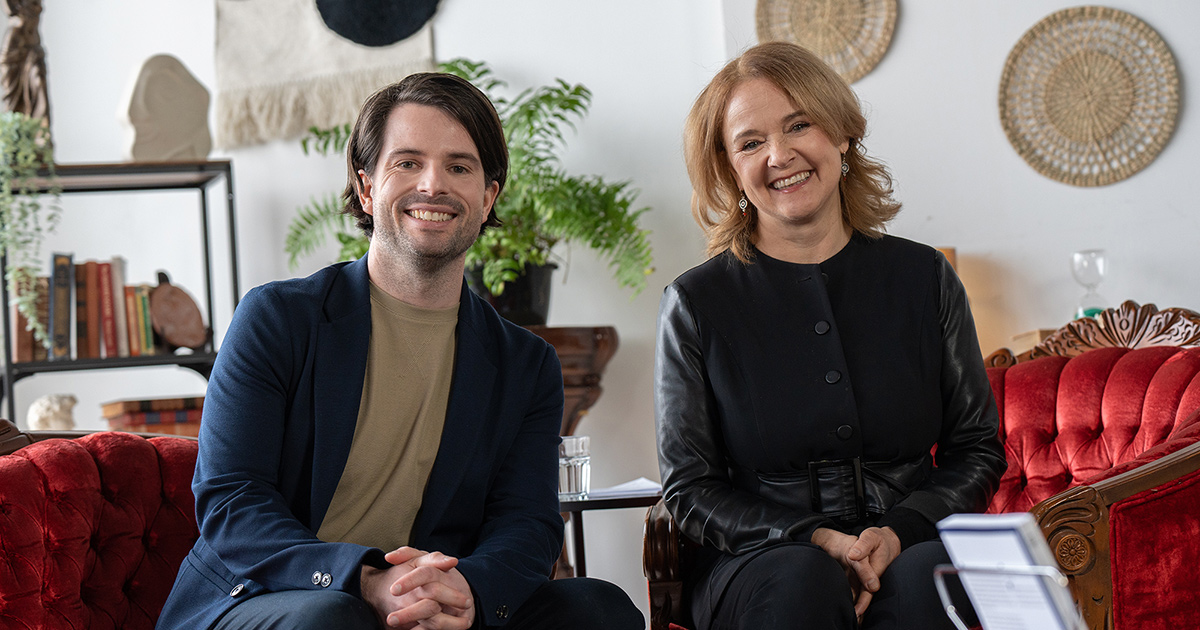
Professors Johanne Poirier and Dave Guénette recently took part in the first episode of Savoir Média’s third season of Horizon Politique. The podcast episode, titled "La diversité nationale dans tous ses états" is hosted by Guillaume Lamy and made in collaboration with UQUAM’s Centre de recherche interdisciplinaire sur la diversité et la démocratie (CRIDAQ). The episode is available on your favourite streaming platform or directly on Savoir média’s website at the following link.
Please note that this podcast episode is exclusively available in French.
Stipend: EURAC Winter School on Federalism

The Peter MacKell Chair on Federalism offers a stipend aimed at financially supporting a McGill Faculty of Law student wishing to participate in the EURAC Winter School on Federalism, to be held February 5 to February 16, 2024, in Innsbruck (Austria) and Bolzano/Bozen (Italy). The Winter School is designed for participants from all nationalities who wish to broaden their knowledge of federalism and multilevel governance through an interdisciplinary and comparative approach. For more information, please see https://winterschool.eurac.edu. The maximum stipend, which would serve to cover registration, travel, and accommodation fees, would be in the amount of $2,000 CAD.
Application procedure:
Interested students should apply directly to EURAC, in accordance with its internal admissibility requirements (information here). The deadline is Sunday October 15, 2023, 5:59 p.m. Montreal time). Please inform Prof. Johanne Poirier that your application has been filed, by sending a message to johanne.poirier3 [at] mcgill.ca, with "MACKELL Stipend / Allocation" in the subject line. Students who are selected by the program may then apply for the stipend by sending a letter of intent, CV, transcript from McGill Faculty of Law, and proof of acceptance to the program, to Prof. Poirier at the same email address.
Admissibility:
The stipend is reserved for undergrad and graduate students currently registered at the McGill Faculty of Law. Students who graduated in September 2023 are also admissible. If several McGill Law students were to be accepted by the programme, a selection process might take place to allocate the stipend.
For more information, please contact Professor Johanne Poirier (johanne.poirier3 [at] mcgill.ca).
Shahal Khoso Awarded the 2023 Ron Watts Award by the International Association of Centers for Federal Studies (IACFS)
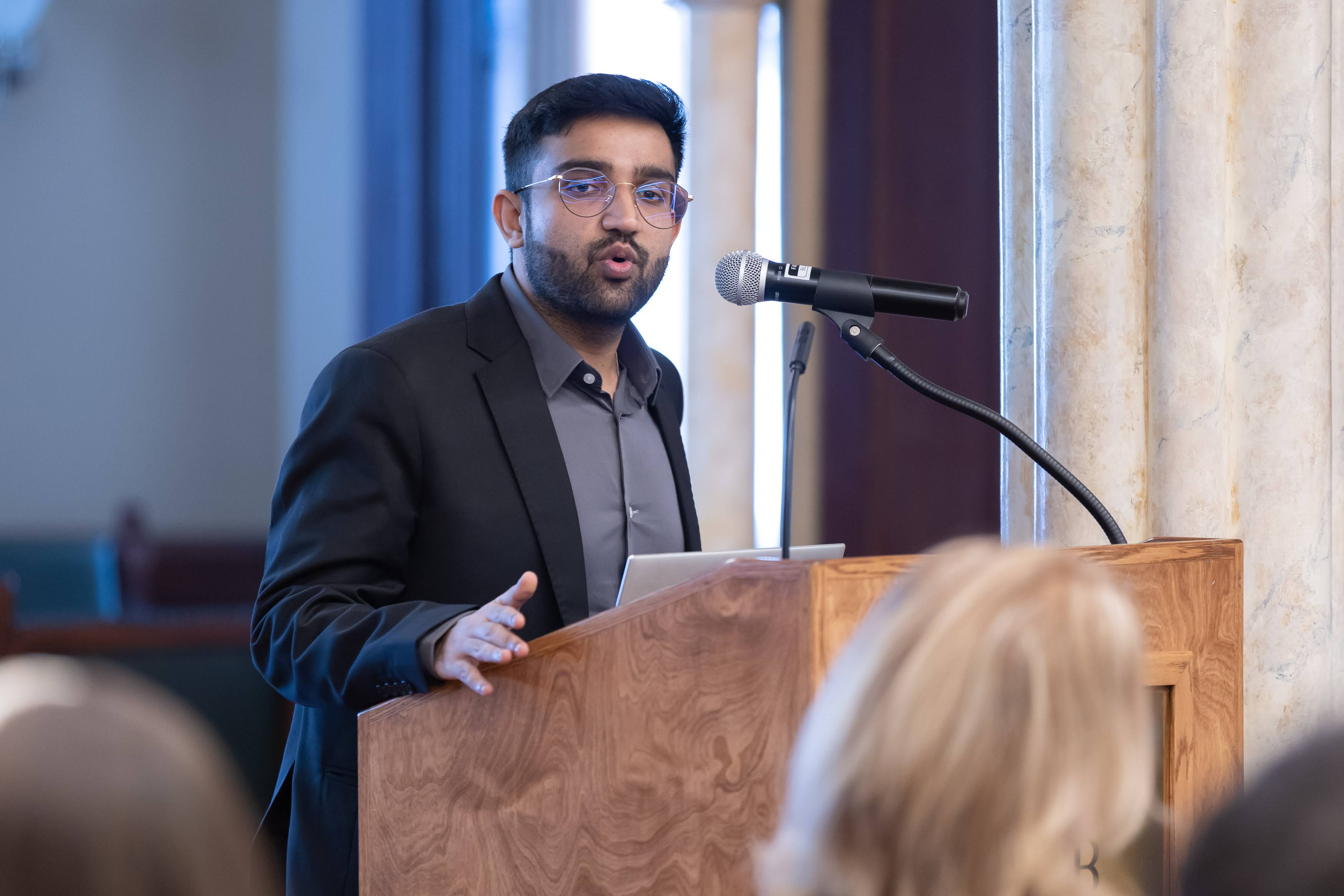
In May 2023, Shahal Khoso (Pakistani PhD candidate in Political Science, Universitat Pompeu Fabra, Barcelona, Spain) won First Prize in the Baxter Family Competition on Federalism. The Peter MacKell Chair in Federalism at McGill’s Faculty of Law is delighted to announce that Shahal has also been awarded the 2023 Ron Watts Award by the International Association of Centers for Federal Studies (IACFS) for his original and ground-breaking paper “Postcolonial Federalism: Tracing Colonial State-Formation in the Global South”.
Many congratulations Shahal!
Winners of the Baxter Family Competition on Federalism 2023: Federalism: What Makes it Work (or not!)
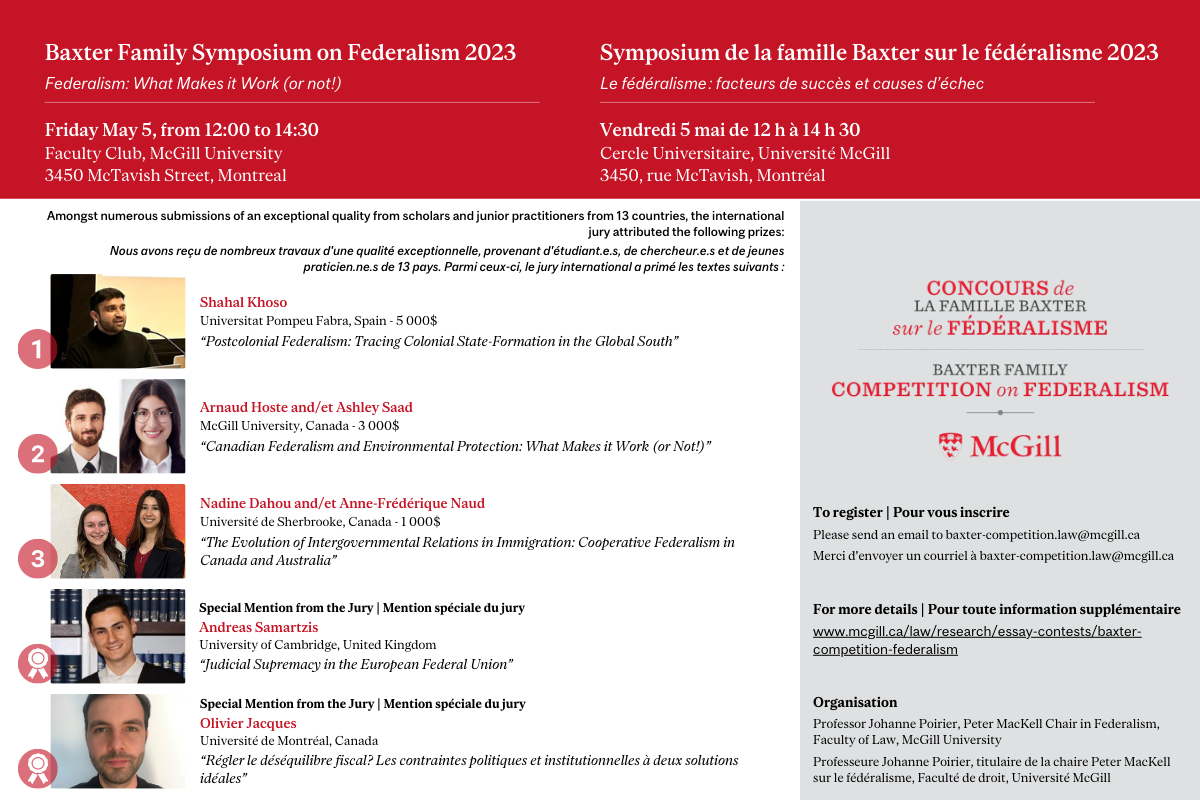
McGill University’s Faculty of Law and the Peter MacKell Chair in Federalism are delighted to announce the winners of the 2022-2023 Baxter Family Competition on Federalism. Organized by Professor Johanne Poirier, this essay competition was open to students and recent graduates in law and political science. We received numerous submissions of an exceptional quality from scholars and junior practitioners from 13 countries, including Argentina, Australia, Austria, Canada, Germany, Haiti, India, Ireland, Italy, Kenya, Spain, the United Kingdom and the United States. We thank all our participants, as well as our distinguished jury. We'll be back in 2023!
For more information on the 2023 edition of the Competition: https://www.mcgill.ca/federalism/baxter-family-competition-federalism
Cooperative federalism, a presentation by Professor Poirier
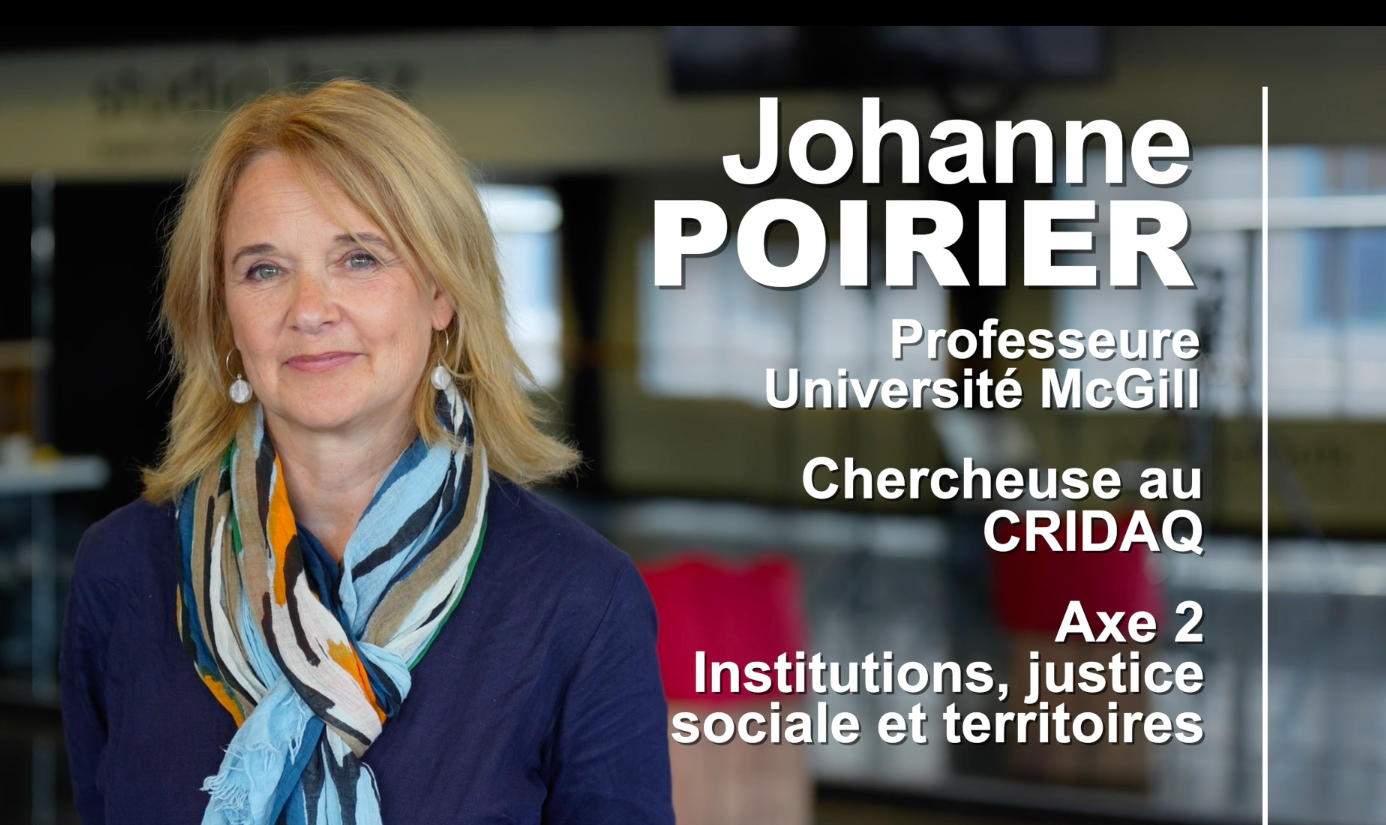
In this explanatory video by the Abécédaire du CRIDAQ, Professor Johanne Poirier presents cooperative federalism in the Canadian context. A concept which promotes negotiation, collaboration, and the acknowledgement of the respective interests between different orders of government, cooperative federalism has experienced a surge in popularity over the last 15 years, especially as a principle of constitutional interpretation. To view the capsule: https://vimeo.com/745133470
Johanne Poirier receives 2022 Durnford Teaching Prize

Professor Johanne Poirier (BCL’91, LLB’91) received the John W. Durnford Award for Teaching Excellence at the Law Convocation ceremony on May 26, 2022. Conferred by students, this award each year recognizes a law professor’s exceptional pedagogy. Students' nomination letters praised Professor Poirier’s care for her students, her “infectious” passion for her subject, and her efforts to create community and facilitate exchanges. This was the second time Professor Poirier was honoured with the Durnford Award, as she was also its 2019 recipient. For more information: https://www.mcgill.ca/law/channels/news/johanne-poirier-receives-2022-du...
Comparative Federalism and Covid-19: Combating the Pandemic
The Chair is happy to announce the publication of Nico Steytler (ed), Comparative Federalism and Covid-19: Combating the Pandemic (London: Routledge, 2021): With case studies from 19 federal countries, this collection explores the core elements of federalism that came to the fore in combatting the pandemic: the division of responsibilities (disaster management, health care, social welfare, and education), the need for centralisation, and intergovernmental relations and cooperation.
The authors adopt a multidisciplinary approach to question whether federalism has been a help or a hindrance in tackling the pandemic. Johanne Poirier and Jessica Michelin contributed the chapter on Canada, which is entitled “Facing the Coronavirus Pandemic in the Canadian Federation: Reinforced dualism and muted cooperation?”.
Publication of Canadian Federalism and Its Future / L’avenir du fédéralisme canadien
Nearly four years after the “Canada 150” conference, we are happy to announce that the collections are available in English and in French from McGill / Queen's University Press and from les Presses de l'Université Laval (2020).
"The time is ripe to revisit Canada's past and redress its historical wrongs. Yet in our urgency to imagine roads to reconciliation with Indigenous peoples, it is important to keep in sight the many other forms of diversity that Canadian federalism has historically been designed to accommodate or could also reflect more effectively. Canadian Federalism and Its Future brings together international experts to assess four fundamental institutions: bicameralism, the judiciary as arbiter of the federal deal, the electoral system and party politics, and intergovernmental relations. The contributors use comparative and critical lenses to appraise the repercussions of these four dimensions of Canadian federalism on key actors, including member states, constitutive units, internal nations, Indigenous peoples, and linguistic minorities. Pursuing the work of The Constitutions That Shaped Us (2015) and The Quebec Conference of 1864 (2018), this third volume is a testimony to Canada's successes and failures in constitutional design. Reflecting on the cultural pluralism inherent in this country, Canadian Federalism and Its Future offers thought-provoking lessons for a world in search of concrete institutional solutions, within and beyond the traditional nation-state."
L’avenir du fédéralisme canadien (available in open access)
Publication of Cinquante déclinaisons de fédéralisme: Théorie, enjeux et études de cas
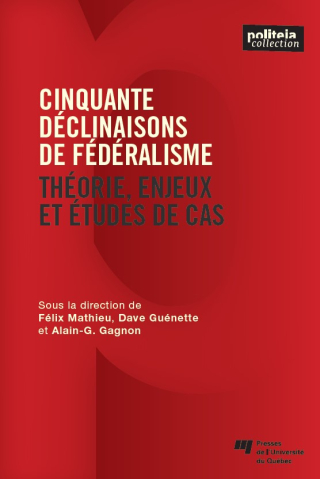 This French-language collection was co-edited by our postdoctoral researcher, Dave Guénette.
This French-language collection was co-edited by our postdoctoral researcher, Dave Guénette.
Cette collection de 50 brèves contributions de spécialistes internationaux "propose un apport d’une grande ampleur tout en se voulant le plus exhaustif possible. Il s’agit d’un ouvrage de référence qui expose clairement les concepts que les chercheurs en études fédérales mobilisent, les cadres d’analyse qu’ils emploient ainsi que les spécificités sociopolitiques qu’on observe dans les diverses structures fédérales existantes. Ce livre comprend également un glossaire constitué de cinquante notions clés, toutes définies de manière simple et usuelle. Faisant le point sur les débats contemporains, il a pour vocation d’initier les étudiants, les décideurs et le grand public à ce champ d’études en pleine effervescence."
This collection, published in 2020 by Presses de l'Université du Québec, is available in open access.
Federalism & the COVID-19 Pandemic - A compendium of (re)sources
11 May 2020: DCL candidate Atagün Kejanlioglu and Professor Johanne Poirier are currently collecting sources on the intersection between federalism-writ-large and COVID-19. We will seek to update every week.
If you wish to contribute to the list, email relevant articles, links, etc. at federalism-covid19.law [at] mcgill.ca.
Good news for Chair team members!
Olivier Henripin, group assistant for Professor Poirier's Constitutional Law course, will clerk at the Quebec Court of Appeal in 2024. Congratulations Olivier!
Our post-doctoral researcher Dave Guénette will continue his career as a professor of constitutional law at Université de Sherbrooke's Faculty of law! Dave, who is currently completing a three-year postdoctorate financed by the Fonds de recherche du Québec - Société et culture (FRQSC), will take up this new position as of June 2023. Congratulations Dave, the entire MacKell team wishes you great success in your future endeavours!
David D'Astous and Jessica Michelin, two of our former research assistants, will clerk at the Supreme Court of Canada in 2023-2024. Congratulations to both! For more information: https://focuslaw.mcgill.ca/introducing-our-2023-2024-supreme-court-clerks/
Cooperative Federalism and Intergovernmental Relations:
What's Law Got To Do With It?
2019-2022 Research project funded by the Secrétariat du Québec aux relations canadiennes
In 2019-2022, Professor Johanne Poirier will be leading a major research project on intergovernmental relations and cooperative federalism.
The technical ramifications and legal implications of intergovernmental agreements, as well as their implementation, have been generally neglected by jurists. However, cooperative mechanisms crafted by the executives can have undeniable collateral effects on the scope of parliamentary scrutiny over the executive, on judicial review of administrative action and on the balance of federal architecture.
Professor Johanne Poirier will attempt to fill these doctrinal gaps by studying the law that emanates from, structures and affects intergovernmental agreements. She also plans to initiate a form of “catalogue” of cooperative techniques and of the role played by law in structuring them. While the project is focused on cooperative federalism in Canada, it will benefit from a comparative lens: analysing foreign experience being so often the best way of decoding the particularities of one’s own system.
Ultimately, her work harbors significant potential to provide answers to the various components of the Canadian federations on the uncertainties inherent to the modalities of intergovernmental cooperation, on the stability of cooperative mechanisms and on the courts’ responses to them.
About the Chair
The Peter MacKell Chair in Federalism aims to reflect on the foundations, potential, risks and concrete incarnations of the “federal phenomenon” understood broadly.
The inaugural holder of the Peter MacKell Chair is Professor Johanne Poirier.
The Peter MacKell Chair in Federalism was created at the Faculty of Law thanks to a generous bequest from Peter R.D. MacKell.
About Peter R.D. MacKell

After his law studies at McGill, he was admitted to the bar in 1951. He began his career with Duquet MacKay, later moving to Martineau Walker, today known as Fasken. He led the firm as Chairman for several years, before retiring in 1995.
Peter MacKell handled many significant litigation and commercial briefs in the course of his career, representing major Canadian and foreign clients. He was also a highly sought-after corporate director, and a member of the board of Goodfellow inc. for many years, as well as a director of the Régie de l’assurance-dépôts du Québec.
